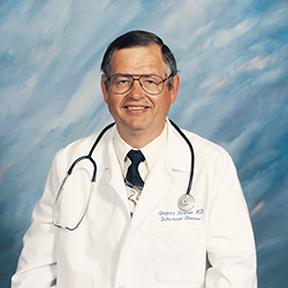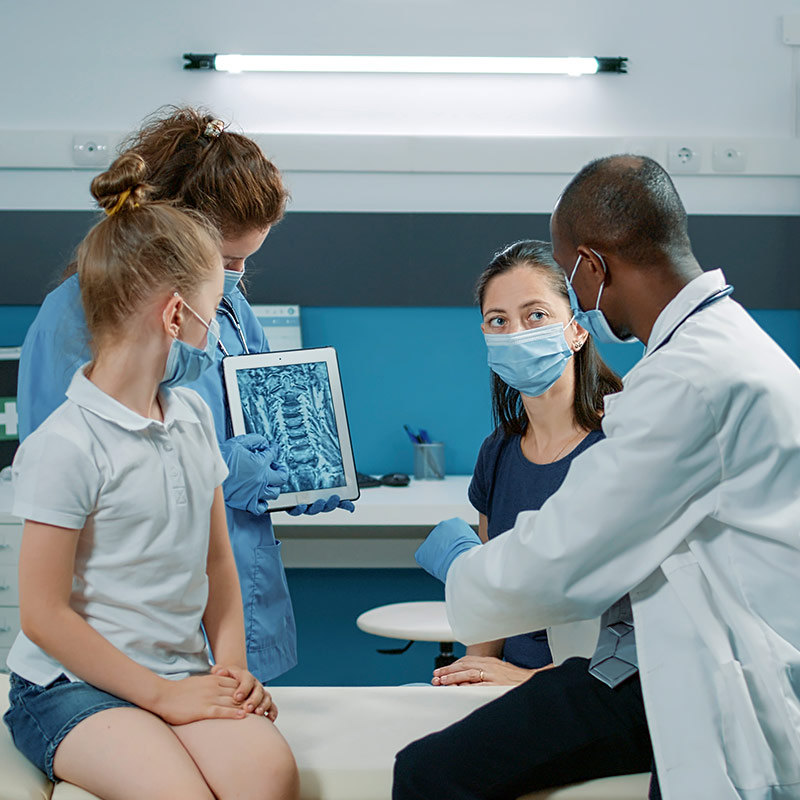Residency and Fellowship Programs
Miller Children’s & Women's Hospital Long Beach is one of only eight free-standing children’s hospitals in California. Since it’s a known regional pediatric destination and a major referral center for children, Miller Children’s & Women's is a perfect place to gain expertise in pediatric specialty care.
In partnership with University of California, Irvine, University of California, Los Angeles, the University of the Southern California and various other local medical schools, the pediatric residency training programs at Miller Children’s & Women's have been a top choice for the nation's finest future pediatricians in Los Angeles and Orange Counties. Each year, more than 200 residents and fellows provide specialized care to infants, children and adolescents.
Miller Children’s & Women's Hospital is instrumental in drawing residents and fellows from across the United States into Southern California residency and fellowship programs, by offering rotations that help them meet their career goals and opportunities to promote their career aspirations by exposing them to an array of primary and sub-specialty programs:
Resident Training Rotations
- General Pediatrics
- Medical Genetics and Genomics
- Physical Medicine and Rehabilitation
- Pediatric Dentistry
Fellowship/Sub-specialty Training Rotations:
- Child Abuse Pediatrics
- Hospice and Palliative Care
- Internal Medicine - Pediatric
- Neonatal-Perinatal Medicine
- Pediatric Anesthesiology
- Pediatric Emergency Medicine
- Pediatric Endocrinology
- Pediatric Hematology Oncology
- Pediatric Orthopedic Surgery
- Pediatric Pulmonology
GME Leadership
Charged with oversight of Long Beach Medical Center Graduate Medical Education Department the Graduate Medical Education Committee (GMEC) serves as a forum for discussion of graduate medical education issues to include not only clinical environments but resident quality of life, recruitment, specialty choice and outcome. The membership of the Committee on Graduate Medical Education includes program directors, site directors and other members of approved residency or fellowship programs.


Curriculum
All pediatricians, including subspecialists, must be well prepared to provide comprehensive care for all children. Miller Children’s clinical faculty and sub-specialists are enthusiastic about preparing residents and fellows for pediatric practice, sub-specialty medicine or general pediatric positions in academia. Formal training in the Accreditation Council for Graduate Medical Education (ACGME) Core Competencies is incorporated into the residency and fellowship curriculum and training:
Compassionate, appropriate, and effective patient care for treating health problems and promoting health.
Demonstrate knowledge of established and evolving biomedical, clinical, epidemiological and social-behavioral sciences, as well as the application of this knowledge to patient care.
Demonstrate interpersonal and communication skills that result in the effective exchange of information and collaboration with patients, their families, and health professionals by:
- communicating effectively with patients, families, and the public, as appropriate, across a broad range of socioeconomic and cultural backgrounds;
- communicating effectively with physicians, other health professionals, and health-related agencies;
- working effectively as a member or leader of a health care team or other professional groups;
- acting in a consultative role to other physicians and health professionals; and, maintaining comprehensive, timely, and legible medical records
Commit to carry out professional responsibilities, adherence to ethical principles, and sensitivity to a diverse patient population with:
- compassion, integrity, and respect for others;
- responsiveness to patient needs that supersedes self-interest;
- respect for patient privacy and autonomy;
- accountability to patients, society and the profession; and,
- sensitivity and responsiveness to a diverse patient population, including but not limited to diversity in gender, age, culture, race, religion, disabilities, and sexual orientation.
Investigate and evaluate care of patients, to appraise and assimilate scientific evidence, and to continuously improve patient care based on constant self-evaluation and life-long learning by developing skills and habits to:
- identify strengths, deficiencies, and limits in one’s knowledge and expertise (self-assessment and reflection);
- set learning and improvement goals;
- identify and perform appropriate learning activities;
- systematically analyze practice using quality improvement (QI) methods, and implement changes with the goal of practice improvement;
- incorporate formative evaluation feedback into daily practice;
- locate, appraise, and assimilate evidence from scientific studies related to their patients’ health problems (evidence-based medicine);
- use information technology to optimize learning; and,
- participate in the education of patients, families, students, residents and other health professionals.
Demonstrate an awareness of and responsiveness to the larger context and system of health care, as well as the ability to call effectively on other resources in the system to provide optimal health care by:
- working effectively in various health care delivery settings and systems relevant to their clinical specialty;
- coordinating patient care within the health care system relevant to their clinical specialty;
- incorporating considerations of cost awareness and risk-benefit analysis in patient and/or population-based care as appropriate;
- advocating for quality patient care and optimal patient care systems;
- working in interprofessional teams to enhance patient safety and improve patient care quality; and
- participating in identifying system errors and implementing potential systems solutions.
- Morning report
- Daily noon lectures series
- Case-based discussions
- Journal club
- Monthly reviews of board-style questions
- Skills-based training (i.e., mock codes)
- Morbidity and mortality conferences
- Pediatric Grand Rounds (every Friday, 8-9 a.m.; Houssels Forum)

